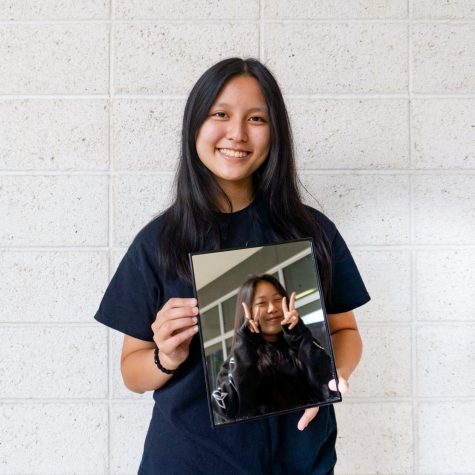Learning One’s Native Language is not a Lost Cause
To reconnect with their culture, bilingual individuals must commit more time toward mastering their mother tongue.
An immigrant family gathers for dinner and begins to reflect on their day, the familiar sounds of their native language ringing across the dining table. A child tugs on their mother’s arm and asks, “I don’t understand. What did they say?”
Language attrition is a widespread linguistic phenomenon in which bilingual speakers either partially or completely lose their ability to speak their native languages.
While language attrition can occur to anyone who speaks multiple languages, it is common among first generation immigrants, second-generation children and beyond. According to a study by sociologists Rubén G. Rumbaut and Douglas S. Massey, by the fourth generation, only 2% of individuals could speak their native language fluently.
Immigrants and their descendents must put more effort toward maintaining or learning their native language to preserve their heritage. This can be accomplished through consistent and early exposure to their mother tongue.
When a person learns a second language, or L2, they may have trouble recalling certain words or phrases from their native language (L1), leading to imperfect speech and loss of fluency. Losing one’s native tongue can make attritioners feel disconnected from their own cultures, resulting in frustration and isolation from the communities into which they once blended so seamlessly.
“I don’t think a lot of students or kids these days are actually focused on learning their language, because some see it as a burden, and they feel like it’s taking up too much of their time where they could be spending it on something they actually like doing,” sophomore Jessica Le said. “But I feel like they kind of regret it in the future when they don’t know their language and can’t converse with others.”
One of the most influential factors in language attrition is parenting and early language development. A study conducted by linguist Cristina Flores has proven that children over the age of 12 are less likely to lose their native language if they speak it fluently in their early years. Additionally, parents who feel obligated to teach their children a foreign language (L2) may speak with incorrect grammar and intonation, resulting in poor acquired language habits.
“I think there’s a misconception out there that if you move to America you should only speak English with your children at home, and so a lot of kids aren’t growing up speaking their native languages,” Spanish teacher Caroline Aldemir said. “If you are an immigrant here from Mexico or from Vietnam or from the Philippines, you should absolutely speak your native language to your children at home.”
While foreign language classes offered at high schools do promote application, there is simply not enough time within a class period to ensure that students have practiced enough to maintain the information learned. Furthermore, outside of class, without parental support, it is unlikely that adolescents will continue to speak, write or read in their native language, ultimately resulting in attrition.
Sophie Hardach, a writer for BBC, communicates her struggles with maintaining her native German. She expresses that, “It is nice to be reminded that from a linguist’s point of view, there is no such thing as being terrible at your own language. And native language attrition is reversible, at least in adults: a trip home usually helps. Still, for many of us, our mother tongue is bound up with our deeper identity, our memories and sense of self.”
To prevent the loss of their native tongue, learners cannot rely solely on casual conversation with relatives or their enrollment in a foreign language class; they need to actively seek out opportunities to engage in discussion and dedicate themselves to learning new vocabulary while simultaneously preserving the words they already know.
“Always find a conversation buddy, even if it is not a language that is predominantly used around here. Just seek out other people that will speak that language with you,” Aldemir said.
Your donation will support the student journalists of Portola High School. Your contribution will allow us to purchase equipment and cover our annual website hosting costs.

Charlotte Cao is the Features Editor for her third and, unfortunately, final year on the Pilot. Whether it be through the co-writing of stories or during...

Jordan Lee, commonly referred to as “The Flash,” is your Visual Director. He has held the positions of front page and photo editors in previous years...

Nate Taylor is the 2021-22 front page editor and photo editor. He is ready to improve his design skills and create memorable Portola Pilot front covers....





